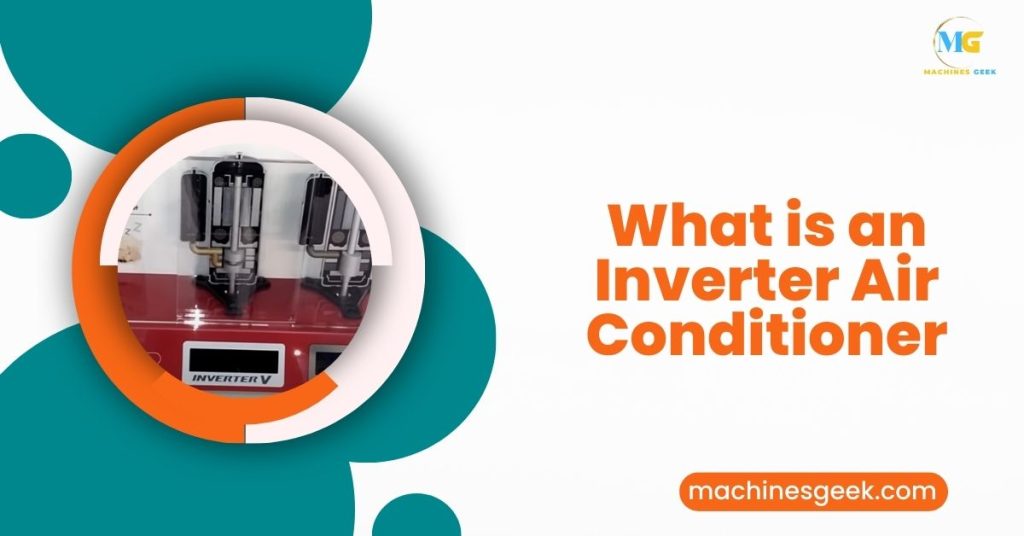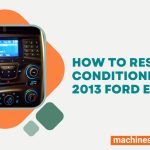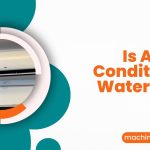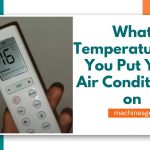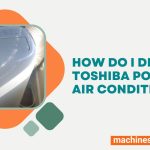What is an Inverter Air Conditioner? An inverter air conditioner is a type of air conditioning system that uses variable-speed technology to adjust the compressor motor’s speed according to the cooling demands, resulting in energy efficiency and precise temperature control. Inverter air conditioners are revolutionizing the way we cool our homes and offices.
Unlike traditional air conditioners that have fixed-speed compressors, inverter air conditioners use advanced technology to automatically adjust the compressor motor’s speed. By varying the compressor speed, these systems can operate at different capacities to meet specific cooling requirements. This not only results in better cooling performance but also reduces energy consumption and lowers electricity bills.
Inverter air conditioners also provide precise temperature control, ensuring comfort even during fluctuating weather conditions. With their exceptional energy efficiency, quiet operation, and environmentally friendly features, inverter air conditioners are becoming increasingly popular in the HVAC industry.
How Inverter Air Conditioners Work
An inverter air conditioner is a modern cooling solution that operates on the principle of inverter technology. Unlike conventional air conditioners, which work on a fixed speed compressor, inverter ACs feature a variable-speed compressor that can adjust its speed based on the cooling requirements. This technology allows for precise temperature control and energy efficiency.
The main difference between conventional and inverter air conditioners lies in their compressor operation. While traditional ACs operate on a start-stop cycle, where the compressor stops when the desired temperature is reached and restarts when more cooling is needed, inverter ACs can continuously regulate the compressor speed. This eliminates the frequent on-off cycling and helps maintain a consistent temperature, resulting in energy savings and better comfort.
The inverter compressor is the heart of the inverter air conditioner. It functions by automatically adjusting the refrigerant flow rate based on the ambient conditions and cooling load. This ensures that the compressor works at the optimal speed to provide the desired cooling capacity without unnecessary energy consumption.
Overall, inverter air conditioners offer superior performance, increased energy efficiency, and quieter operation compared to conventional models. With their innovative technology, these ACs provide a comfortable and environmentally friendly cooling solution.
Benefits Of Inverter Air Conditioners
An inverter air conditioner is a type of air conditioning system that offers several benefits compared to traditional non-inverter models. One of the key advantages is its energy efficiency and cost savings. Inverter air conditioners use advanced technology to adjust the compressor motor’s speed, resulting in significant energy savings. This means that the unit runs only at the necessary capacity to cool or heat the room, avoiding any energy wastage. As a result, users can enjoy lower energy bills without compromising on comfort.
In addition to energy efficiency, inverter air conditioners offer superior cooling and heating performance. They are designed to maintain a consistent temperature in the room, rather than experiencing temperature fluctuations. This ensures a comfortable and pleasant indoor environment throughout the day. Noise reduction is another benefit of inverter air conditioners. The variable-speed compressor operation helps reduce operating noise, providing a quieter environment for relaxation or work.
Overall, inverter air conditioners are a great investment for those seeking energy efficiency, cost savings, superior performance, and improved comfort. With their advanced technology, these units offer the perfect balance between cooling/heating requirements and energy consumption, making them an excellent choice for any home or office space.
Factors To Consider When Buying An Inverter Air Conditioner
An Inverter Air Conditioner is a popular choice among homeowners due to its energy efficiency and advanced cooling technology. When buying an Inverter Air Conditioner, there are a few key factors to consider:
Capacity and cooling efficiency: Determine the size of the unit that suits your space. The cooling capacity is measured in British Thermal Units (BTUs), and matching the BTU to the room size ensures efficient cooling. Look for a high Energy Efficiency Ratio (EER) rating as it indicates better cooling efficiency and lower energy consumption.
Installation requirements and cost: Understand the installation requirements of an Inverter Air Conditioner. Some models may require extra wiring or modifications to the electrical system. Consider the installation cost and ensure you have adequate space for the outdoor unit.
Maintenance and warranty considerations: Check the maintenance requirements of the Inverter Air Conditioner. Look for models with easy-to-clean filters and self-diagnostic features. Additionally, consider the warranty offered by the manufacturer, as it provides peace of mind in case of any malfunction or repair needs.
Common Features Of Inverter Air Conditioners
An inverter air conditioner is a cooling system that utilizes advanced technology to provide efficient and cost-effective cooling. These air conditioners offer several common features that set them apart from traditional models.
Inverter air conditioners are designed to precisely control the temperature and humidity levels in a room. This ensures optimal comfort and creates a pleasant environment to live or work in.
Inverter air conditioners are equipped with high-quality air filters that efficiently remove dust, pollen, and other pollutants from the air. This helps improve indoor air quality and promotes a healthier living space.
Inverter air conditioners often come with smart and programmable features that allow users to adjust settings according to their preferences. These features include timers, sleep modes, and energy-saving options, providing convenience and energy efficiency.
Potential Drawbacks Of Inverter Air Conditioners
An inverter air conditioner is a type of air conditioner that uses advanced technology to provide energy-efficient cooling. While these appliances offer several benefits, they also come with a few potential drawbacks that buyers should consider. One disadvantage is the higher upfront costs associated with inverter air conditioners compared to traditional models. The advanced technology and energy-saving features contribute to the higher price tag.
Another drawback is the potential for compatibility issues and limitations. Inverter air conditioners may require specific electrical requirements or need additional equipment, which could limit their use in certain settings. It’s essential to check the compatibility and limitations before purchasing to ensure it suits your needs and space.
Additionally, inverter air conditioners require professional installation and maintenance. Due to their complex technology, these units may need professional assistance for installation, repair, and regular maintenance. This can incur extra costs and reliance on experts.
Despite these drawbacks, inverter air conditioners remain a popular choice for their energy efficiency, improved temperature control, and overall comfort.
Tips For Proper Use And Maintenance Of Inverter Air Conditioners
An inverter air conditioner is a unique cooling system that adjusts its speed to maintain a desired temperature. To ensure proper use and maintenance, follow these tips: clean the filters regularly, check for any leaks or unusual sounds, keep the outdoor unit free from obstructions, and schedule professional maintenance at least once a year.
Setting optimal temperature and fan speed: When using an inverter air conditioner, it is important to set the temperature and fan speed at optimal levels for efficient operation. During hot summer months, setting the temperature between 24-26 degrees Celsius can help maintain a comfortable indoor environment while reducing energy consumption.
Similarly, adjusting the fan speed to match the cooling needs can enhance the unit’s performance. For moderate cooling, opting for the low fan speed setting is recommended, while high fan speed can be selected during intense heat conditions. Regularly monitoring and adjusting these settings based on external temperature changes can help achieve effective cooling and save energy.
Regular cleaning and filter replacement: To ensure the longevity and efficiency of an inverter air conditioner, regular cleaning and filter replacement are crucial. Dust and dirt accumulation on the unit’s inner components can hinder its performance, leading to increased energy consumption and reduced cooling capacity.
Cleaning the air filters every two weeks and removing any debris or obstructions from the outdoor unit are essential maintenance practices. Additionally, replacing the air filters every few months improves the air quality and prevents the occurrence of various respiratory issues.
Troubleshooting common issues: In spite of proper use and maintenance, inverter air conditioners may encounter common issues that require troubleshooting. Some common problems include inadequate cooling, water leakage, unusual noises, or error codes on the display panel.
In such situations, it is recommended to refer to the product manual or contact a professional service technician. Attempting to fix these issues without proper knowledge can lead to further damage. Regular maintenance, including professional inspections, can help identify and resolve potential problems before they escalate.
By following these tips for the proper use and maintenance of inverter air conditioners, you can ensure their optimal performance, energy efficiency, and longevity.
Frequently Asked Questions
What Are The Advantages Of An Inverter Air Conditioner?
Inverter air conditioners provide energy efficiency, precise cooling, quiet operation, and consistent temperature control.
How Does An Inverter Air Conditioner Save Energy?
An inverter air conditioner saves energy by adjusting the compressor speed according to the desired temperature, resulting in reduced power consumption.
Is An Inverter Air Conditioner Worth The Investment?
Yes, investing in an inverter air conditioner is worth it due to the long-term energy and cost savings it offers, making it a cost-effective option.
– What Are the Benefits of Inverter Technology in Air Conditioners?
Inverter technology in air conditioners offers numerous benefits, and choosing an Ameristar air conditioner manufacturer ensures high-quality products. With inverter technology, air conditioners can provide more energy-efficient cooling and heating, resulting in lower energy bills and better environmental impact.
Conclusion
An inverter air conditioner is a cutting-edge technology that saves energy and provides optimal comfort. It utilizes a variable speed compressor to adjust the cooling or heating capacity according to the room’s requirements. This reduces power consumption and noise levels, resulting in significant energy savings.
With its eco-friendly operation and superior performance, an inverter air conditioner is an excellent choice for maintaining a comfortable indoor environment while minimizing your carbon footprint. Invest in this modern cooling solution and enjoy the benefits of efficient and cost-effective cooling for years to come.

